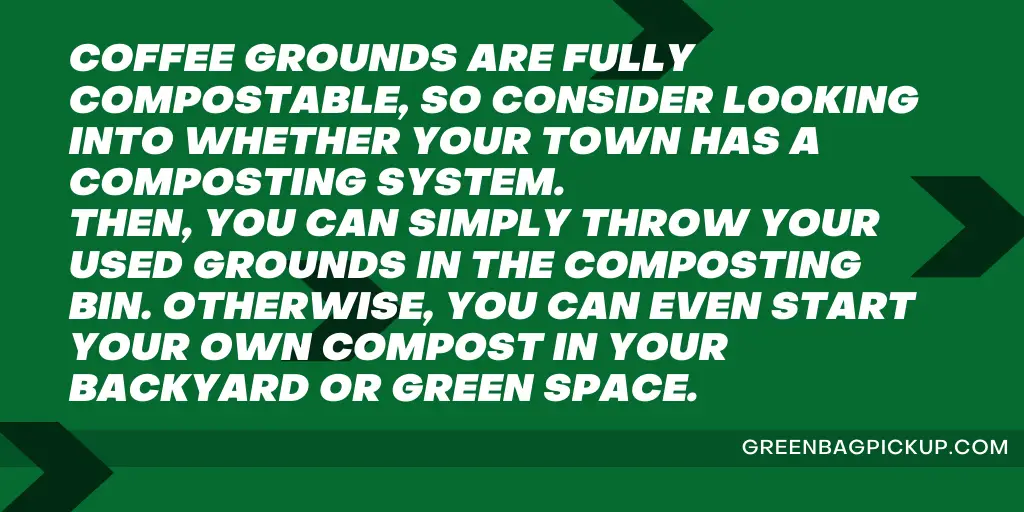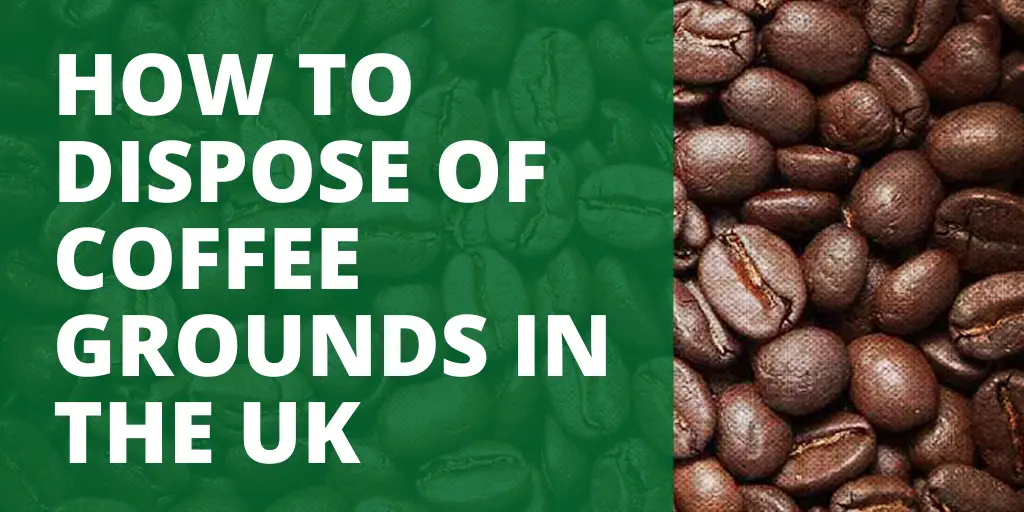Something most people can’t live without is their daily cup of coffee. Whether you brew your cup of joe using a coffee maker, machine, Dress press, pour-over, or other brewer, it’s a daily ritual that starts the morning off right.
But after the coffee is done brewing, where do the excess grounds go? There are many ways to get rid of your used coffee grounds. We’ll go through some ways to dispose of them, and tips on reusing old grounds.
Are Coffee Pods Recyclable?
Many people get their daily cup of joe from a coffee machine, like a Keurig or Nespresso. Not all coffee pods are made the same, though. Different companies provide different instructions on how to properly dispose of their pods.
To figure out if your coffee pods are recyclable, check the label on the pod or the packaging for the recycling symbol. Then, empty the coffee grounds in the compost, rinse out the pod and recycle the plastic.
Tom’s of Maine describes why properly disposing of used coffee grounds is important:
“When you recycle coffee grounds, they’re kept out of landfills. This practice doesn’t just help the earth—it also benefits the air. See, when used coffee grounds are sent the way of the trash, they’re compacted into a space without oxygen. When compostable materials are placed into those conditions, their decomposition creates methane gas, the second most prevalent greenhouse gas.”
How to Dispose of Coffee Grounds in the UK
If you’re getting rid of loose coffee grounds from your coffee maker, there are multiple options for proper disposal. While the east route may be to throw it in the garbage, this is not an environmentally-friendly choice, as the grounds will go to waste. If you have access to an organic compost system in your home, this is the best way to dispose of coffee grounds.
It’s important that coffee grounds or beans are not washed down the sink or water drains. This can clog up your water system and create more issues for water filtration.

Coffee grounds are fully compostable, so consider looking into whether your town has a composting system. Then, you can simply throw your used grounds in the composting bin. Otherwise, you can even start your own compost in your backyard or green space. There are lots of options available that can make a good waste impact.
John McKenna of the World Economic Forum explains how your leftover beans can have more than just obvious uses:
“As well as being rich in natural oils, potassium and nitrogen, coffee grounds have an abrasive texture that can make them a recycled alternative to various cleaning products in the home. They can even be used to clean hair. For people who use styling products, rubbing coffee grounds into their hair in the shower can help loosen and remove residues left behind by those products.”
Other Uses for Coffee Grounds
For eco-friendly solutions, you can reuse your coffee grounds after steeping your coffee. Since it’s a naturally-occuring product, coffee has a lot of natural uses, from gardening to body products.
If you’re looking for a way to cut down on your waste, you can turn your grounds into fertilizer for your plant or herb garden.
Coffee Central Roasting Company explains how you can turn your coffee into fertilizer:
“Using coffee grounds as a fertiliser has often been criticised by gardeners due to the acidic levels of the coffee. However, this can be avoided by rinsing your coffee grounds with water which will ensure that the grounds have a lower pH level and are not acidic.”
Coffee can also be used to make homemade facial and body coffee scrubs. Consider turning coffee into a fun at-home craft by combining it with baking soda to make a fun baked clay for kids.
Contact us to see what waste disposal services we can offer you.

